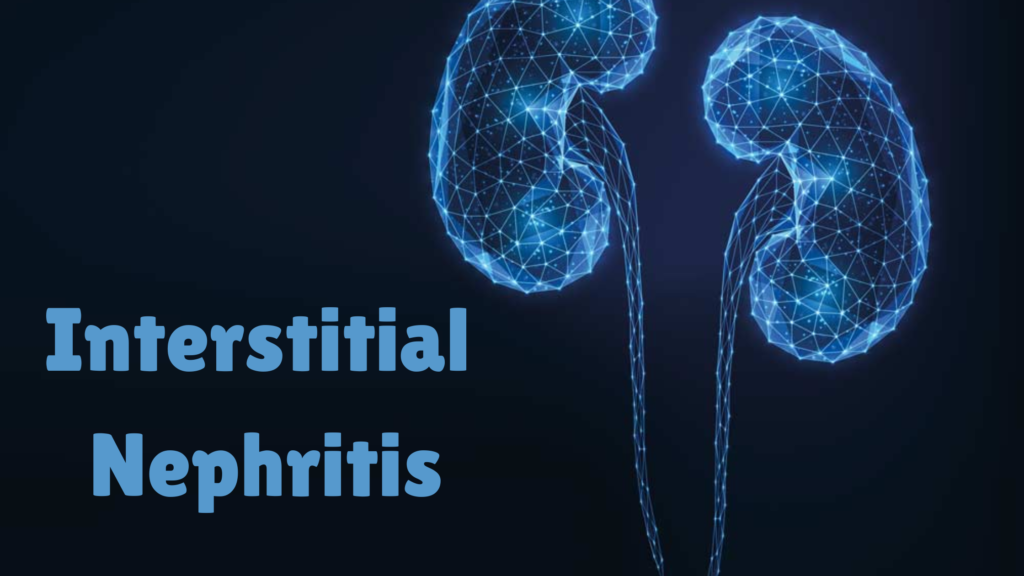🧬 What Is Interstitial Nephritis?
Interstitial nephritis is a kidney disorder characterized by inflammation of the spaces between the kidney tubules. This inflammation can impair the kidneys’ ability to filter waste and balance fluids, leading to potential kidney dysfunction.
🩺 Causes
Interstitial nephritis can be triggered by various factors:
- Medications: Certain drugs, including antibiotics (e.g., penicillin), nonsteroidal anti-inflammatory drugs (NSAIDs), proton pump inhibitors (PPIs), and diuretics, can cause allergic reactions leading to interstitial nephritis.
- Infections: Bacterial infections like E. coli, viral infections such as HIV or herpes, syphilis, parasites, and exposure to fungi are all infections that are linked to interstitial nephritis. Kidney infections also cause interstitial nephritis
- Autoimmune Disorders: Conditions like lupus, sarcoidosis, and Sjögren’s syndrome can lead to chronic interstitial nephritis.
- Electrolyte Imbalances: Abnormal levels of potassium or calcium in the blood may contribute to the condition.
⚠️ Symptoms
Symptoms of interstitial nephritis can vary but may include:healthline.com
- Decreased or increased urine output
- Fever
- Rash
- Fatigue or weakness
- Nausea and vomiting
- Swelling in the body
- Weight gain due to fluid retention
- Elevated blood pressure
🧪 Diagnosis
Diagnosing interstitial nephritis typically involves:
- Reviewing medical history and medication use
- Physical examination
- Urinalysis to detect abnormalities
- Blood tests to assess kidney function
- Kidney biopsy in certain cases to confirm diagnosis
💊 Treatment
Treatment strategies depend on the underlying cause:
- Medication Discontinuation: Stopping the use of the offending drug is crucial.
- Corticosteroids: In cases of inflammation, corticosteroids may be prescribed to reduce swelling.
- Dialysis: In severe cases with significant kidney impairment, dialysis may be necessary.
- Managing Underlying Conditions: Addressing any contributing factors, such as infections or autoimmune disorders, is essential.
🛡️ Prevention
Preventive measures include:
- Being cautious with the use of medications known to cause interstitial nephritis
- Regular monitoring of kidney function, especially when on long-term medications
- Maintaining a healthy lifestyle to support overall kidney health
